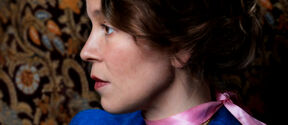Game-changing calls for creativity

You are a pioneer in combining new media, art and technology. What is personally your most significant achievement?
Already as a young artist and engineering student, I was very excited about the idea of combining art, technology and society. Now, having been for almost 25 years the head of Ars Electronica it is great to see, that it’s work is still extremely valuable.
Our aim isto better understand the dynamics between arts and technology and to equally benefit the technology, art and cultural areas.
At the start of Ars Electronica there were only a few players in the field. We started from the desert, now we are a nice park and I hope in the future we are a very vital forest nurturing artistic thinking in the society.
Which technologies are you now working with?
Machine learning and artificial intelligence, as they are so inspirational as well as frightening ones. I think Europe has a big chance to remain a global big player in these fields by finding a third way between the data capitalism of the USA and the data totalitarianism of China. Maybe we can develop a kind of data humanism. Our data protection rules are a very good first torchlight in the vast darkness of companies just owning every data of the people.
I would like to join the forces of Ars Electronica, Aalto Media Lab and other relevant players in developing human-centered technology and in humanizing technologies through art.
You are preparing a robotic show for the Tokyo Olympics 2020, what is this about?
It is a project with NTT Communications, a big Japanese telecom corporation. There will be a swarm of 50 robots driving on the ground. Each robot will have a table-sized high-resolution screen on top of them. Technically it is 50 moving screens that are controlled with a swarm operating system. The swarm can reconfigure itself as part of the show: in one moment there can be 50 robots in a long row and in the next minute they can create a circle or one big screen. Two Japanese artists will provide visual art for the autonomous swarm of the robotic screens.
How do you see the status of Aalto Media Lab in the international field?
Aalto Media Lab is one of the pioneering labs in Europe in bringing together arts and technology. It was founded in 1994 and is certainly one of the few who has been able to sustain for such a long time. One of the most important points in making impact is durability. At the end it’s much more a process of nurturing than exploiting creativity.
I also admire the very strong international approach of the Media Lab. It is an open-minded international and interdisciplinary society with students and researchers from all around the world.
Aalto University is educating game changers for the society. Which kind of skills should they have?
First you need a very good basic understanding of the technologies you are dealing with. But if we only educate good engineers, we are very good in solving today’s problems. Game changers, in turn, are also able to recognize new possibilities behind problems. This is where creativity steps in. Looking at the problems of our world through the eyes of the artist is something all students can learn from. Sometimes it is not just a straight solution to a problem, but a completely different way of doing things. This is what game-changing is all about.
How do you see the future of Ars Electronica?
The best thing I can hope and dream for is to be as relevant player as we are now.
We have just completely redesigned the Ars Electronica Center dedicating the exhibitions to artificial intelligence. In ten years, we may speak of totally different technologies. I hope that also at that time we will be among the first players dealing with those topics.
I also hope that the society at large, also the politics, learn to recognize and appreciate the qualities of artistic thinking and research. We could save a lot of pain and troubles in the future if we would listen to what the artists are envisioning and telling us.
Text: Marjukka Puolakka
Read more news

Viivi Prokofjev is Graphic Designer of the Year 2026
Art director, illustrator, and book designer Prokofjev's work combines tradition and craftsmanship with intuition and bold carnivalism.
Postdoctoral researcher Eloi Moliner makes history as a 5-time award winner
Eloi Moliner is one of the most decorated doctoral researchers in Aalto University's history – we would like to highlight his success and contributions to the field of audio signal processing
Chem Awards 2025 recipients announced
The School of Chemical Engineering recognises outstanding individuals and teams for their exceptional contributions over the year






